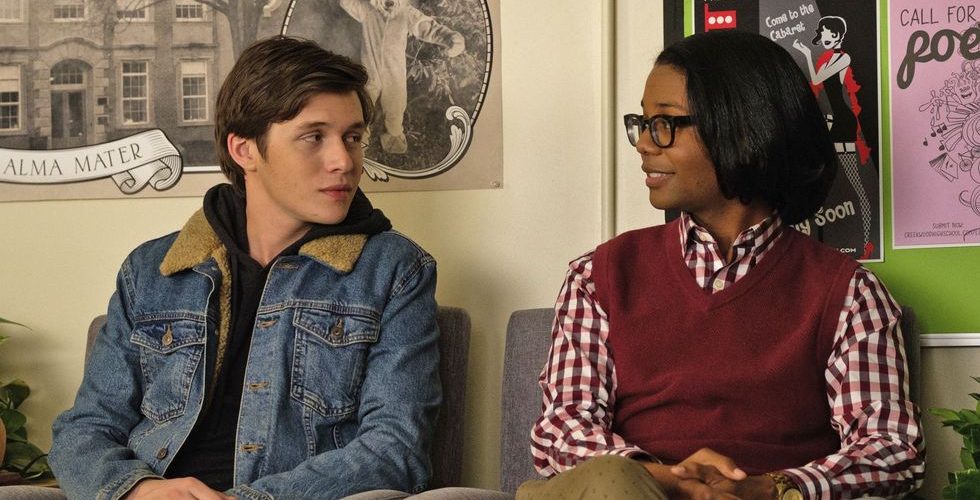Simon says: let there be love
We’re probably all used to the tropes of the dull, high-school teenager film, making drama out of nothing, but what sets Love, Simon apart is the open, accepting message at its centre.
Simon, played by Nick Robinson, posits himself as your normal teen, but he harbours a secret: he’s gay. No one knows this, not even his closest friends, but he finds solace in communication with an anonymous penpal in the same position.
That central theme of coming to terms with your own sexual identity, but not wanting to be defined by it, is the most captivating element. Nick Robinson does a solid job of playing the teen with a secret; he doesn’t play it for laughs or overdo the woe, but aptly plays out what must be a daunting moment in any gay teens’ life.
The rest of the students, be them Simon’s friends or fellow high-schoolers, all come across as a little bit annoying. They’re all smooth skinned, fresh faced and twee – when actually we know, having been teens ourselves, that hormones, acne and bad moods are the reality. Even the bullies who pick on Ethan, who is picked on because he’s opened up about being gay, are tame in comparison to how cruel and physical real bullies can be.
‘Even Jennifer Garner and her weird mouth can’t ruin the film entirely’
What is grating about Simon as a character, however, is his assertion that he’s a normal teen – because he’s not. Not because he’s gay, but because he is from an extremely understanding and well-off family. His bedroom has it’s own mini-balcony for goodness sake. The comfort afforded to him by his family – including a precocious, unrealistically friendly little sister – is not the reality of “normal” teens.
It’s Robinson’s warmth in the role and his delivery of the quiet, personal distress which keeps you from getting up and walking out. There is moment where he questions why straight is the considered the default, and despite the point being laboured in a fairly unamusing montage, he’s right. The film continues to battle against this idea, while showing how difficult it makes things for people in Simon’s position.
Where the film also does succeed is in keeping your attention. By not revealing the identity of Simon’s penpal ‘Blue’, you’re kept guessing, wondering which of his friends or school-mates will be the kindred spirit. The candidates are all believable, dropping hints and red herrings which make the convoluted drama of Simon’s actual friends a little annoying. Even Jennifer Garner (playing Simon’s mum) and her weird mouth can’t ruin the film entirely, and she actually quite adequately delivers a monologue describing her observations on Simon’s recent behaviour. If you want a deeper, more moving moment between a child and parent on the subject of love, however, you can do better with Call Me By Your Name.
Whether this is billed to you as a rom-com or teen drama, the important thing is that a mainstream movie has a central character coming to terms with being gay, without resorting to stereotyping. While we can look at this as one of those “important” films coming out of Hollywood recently, it should also be noted that this isn’t a cinematic masterpiece. There won’t be much reason for repeat viewings of this film, it should just simply help shape the future of normalising the process of feeling at home with your own sexuality. With more characters in Simon’s position on the big screen, maybe it will offer some hope and solidarity to anyone feeling like they’re at this kind of juncture in their life.
Cinema has the power to do things like that, you see. It may not always take steps in the right direction, but when it comes to cultural impact, it does seek to help spread understanding and acceptance in western society. That seems like quite a grand thing to say in a review for a film like this, but it’s true.
